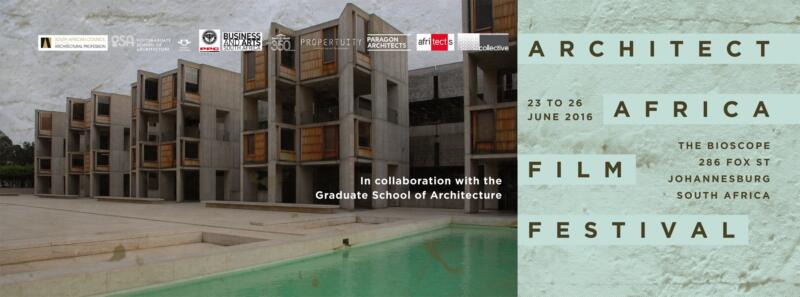
About a month ago, I published a call for black film festivals all over the world to get in touch with me (specifically those we don’t already know about and cover on this blog), as I plan to compile a comprehensive database of all the black/African film festivals globally, in part to help filmmakers who routinely ask me for this kind of information.
Since that announcement, I’ve received several emails alerting me to festivals from all over the world that I didn’t know existed; some have come directly from the people who run them (or are affiliated with them in some way); others have come from festival attendees who just want to be helpful… like this one, which was forwarded to me by Ephraim Gwafor, a film student who resides in Johannesburg, South Africa.
It’s a festival that incorporates one of my other loves – architecture. Those close to me have heard me say at one time or another that if I weren’t in the film business, I would possibly be an architect (as an aside, one of my older siblings is an architect, so it was a “slot” that was already taken before it was my turn, as my West African parents decided early on what each child would grow up to become). But it is the intriguing combination of cinema and architecture as the foundation for a film festival that I find very appealing; hence this brief mention (as I haven’t singled out any of the other festivals until now).
The relationship between architecture and cinema is one that is obvious and well-documented, from huge breathtaking sets, to more intimate layouts; the architecture in a film can play as strong a role as any character in translating the director’s vision to his/her audience. In constructing the environments of their narratives, an argument could even be made that filmmakers could be considered architects in their own right. Film is a visual medium after all, employed by filmmakers to, in part, visualize, document and narrate form and space. Any opportunity to entertain, engage and educate about architecture and design in the realm of cinema, is much welcomed – especially in any kind of African context.
The Architect Africa Film Festival, as it’s called, is still relatively young, created in 2006, calling Johannesburg home.
Its organizers call themselves The Architects’ Collective (a non-profit company) which hosts cultural events that promote the architecture as a profession across the African continent. Their first initiative was/is the Architect Africa Film Festival (http://aaff.co.za), which typically takes place in several South African cities, over a few weeks.
The festival’s 2016 event is about a month away, running from June 23 to 26, with a planned lineup of feature and short film screenings over four days, to be held at the Bioscope in Maboneng, Johannesburg, with parallel evening events at the Museum of African Design (MOAD), The GA_P: A Saint-Gobain Urban Lounge.
This year’s lineup of films has yet to be announced, but I very curious to see what is selected, and how architecture plays a role in each – enough to be considered for such a specific festival.
With the theme “Feel Universal, Think Global and Act Local,” per the organizers, the 2016 event will bring audiences “exciting and thought-provoking content on Africa’s dynamic and multi-layered built environment […] Advances in digital communications and media have changed the way we live, work and play […] Previously unheard voices can now be heard; new spaces and opportunities are opening up all around us all the time; and we’re able to engage around common causes in ways that previous generations could not […] This is a multidisciplinary, multimedia event that aims to actively develop Africa’s knowledge economy in the design and construction sectors through thought leadership, making connections, and exploring evolving trends in media. For almost a decade, the Architect Africa Film Festival has been recognized and enjoyed by many as a top quality event bringing together built environment professionals, students, the media and the public. The selected films are highly rewarding and enjoyable; and have raised pertinent issues, encouraged discussion, and facilitated interaction between audience members and film makers since 2007.”
This was meant to be a quick intro to the festival; I’ve reached out in the hopes of nabbing a quick interview with them, which I will share here once done.
In the meantime, feel free to browse their website here: http://aaff.co.za.

